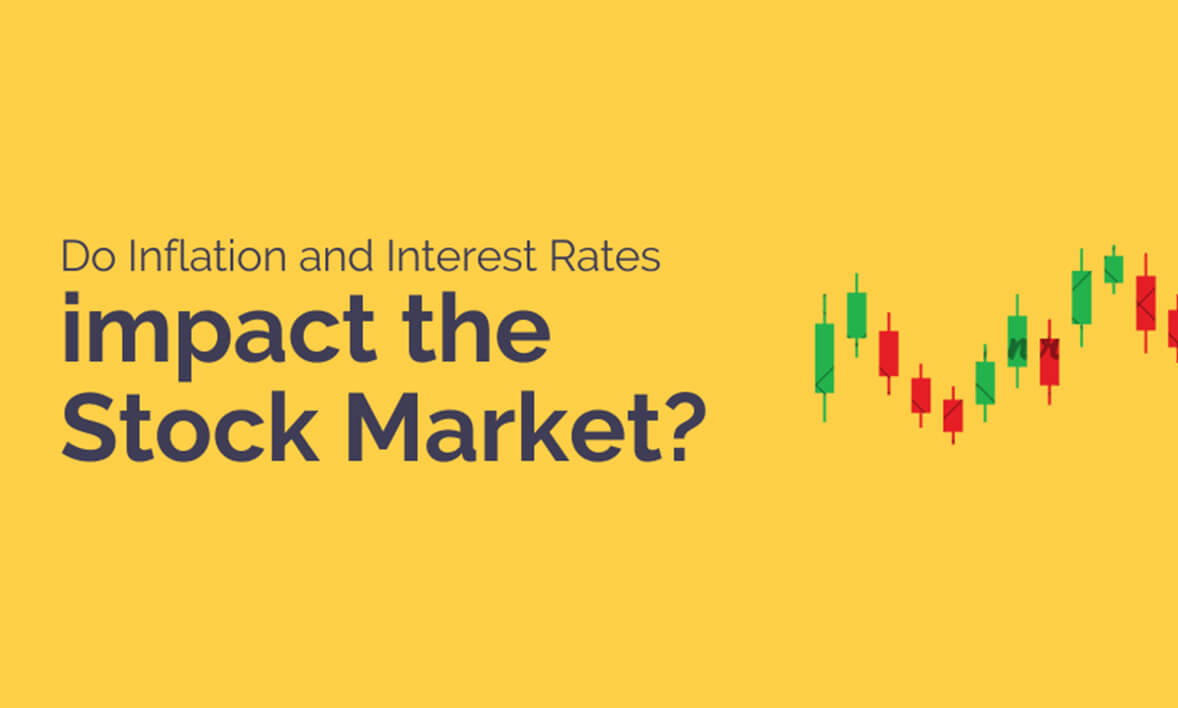How do rising inflation and interest rates impact the stock market?
The equity indices are scaling new highs, but inflation continues to be stubborn. This has made the Reserve Bank of India stay cautious on interest rates, meaning they will remain high. So if inflation is such a monster that it is made out to be, then why are investors piling more cash into shares of companies? Are these companies immune to the impact of inflation?
The Inflation-Stock Market Tango
Inflation, simply put, is the rate at which the general level of prices for goods and services is rising. It's like a slow ebbing tide that erodes the purchasing power of money over time. Now, you could ask, "What's that got to do with my stocks?" Well, quite a lot, actually.
The Direct Impact
Inflation directly impacts stock markets in several ways. As inflation rises, the cost of goods and services increases. This means companies must shell out more money to produce the same amount of goods or services.
If these companies can't pass these costs onto consumers, their profit margins shrink. This, in turn, can lead to a fall in their stock prices.
Indirect Impact
Inflation also has an indirect impact on stock markets through its influence on interest rates. Central banks often hike interest rates to keep inflation in check. Higher interest rates mean higher borrowing costs for companies, which can eat into their profits.
Additionally, higher interest rates can make bonds and other fixed-income investments more attractive compared to stocks, leading to a sell-off in the stock market.
Another Perspective
Now, before you start panicking about inflation, let's not forget that it's not all that bad, in the right proportion.
Inflation is often a sign of a robust economy. When the economy is booming, consumers are willing to spend more, and companies can pass on the increased costs to consumers without hurting their sales.
This can lead to higher sales, steady margins and potentially higher stock prices.
Moreover, some sectors can actually benefit from inflation. For instance, companies in the commodities sector can see their sales rise as the prices of commodities rise with inflation.
Navigating Inflation
Understanding the impact of inflation on stock markets is one thing, but how do you navigate the choppiness? Here are a few things that can be one:
- Asset Allocation: Don't put all your eggs in one basket. Diversify your investments across asset classes to spread the risk. Assemble a bond portfolio that resembles a ladder of bonds at various interest rates as new issues happen at higher rates. Each rung of this ladder boosts your returns
- Invest in inflation-resistant sectors: Some sectors, like commodities and real estate, tend to do well during inflationary periods. Consider having a portion of your portfolio in these sectors.
- Keep an eye on the economic indicators: Stay informed about economic indicators like inflation rate, interest rates, GDP growth and other high-frequency economic indicators. This can help you anticipate market trends and make informed investment decisions.

Q: How does inflation impact stock markets?
A: Inflation impacts stock markets both directly and indirectly. Directly, it increases the cost of goods and
services, potentially shrinking companies' profit margins and decreasing their stock prices. Indirectly, it
influences interest rates, which can affect companies' borrowing costs and investors' preferences for stocks versus
other investments.
Q: Can inflation be good for stock markets?
A: Yes and No. Inflation can be a sign of a robust economy, but it erodes purchasing power. So if RBI raises
interest rates to control inflation, stock prices could fall.
Q: How can I protect my investments from inflation?
A: Diversifying your portfolio and following an asset allocation strategy is key to protecting your
investments from inflation.

